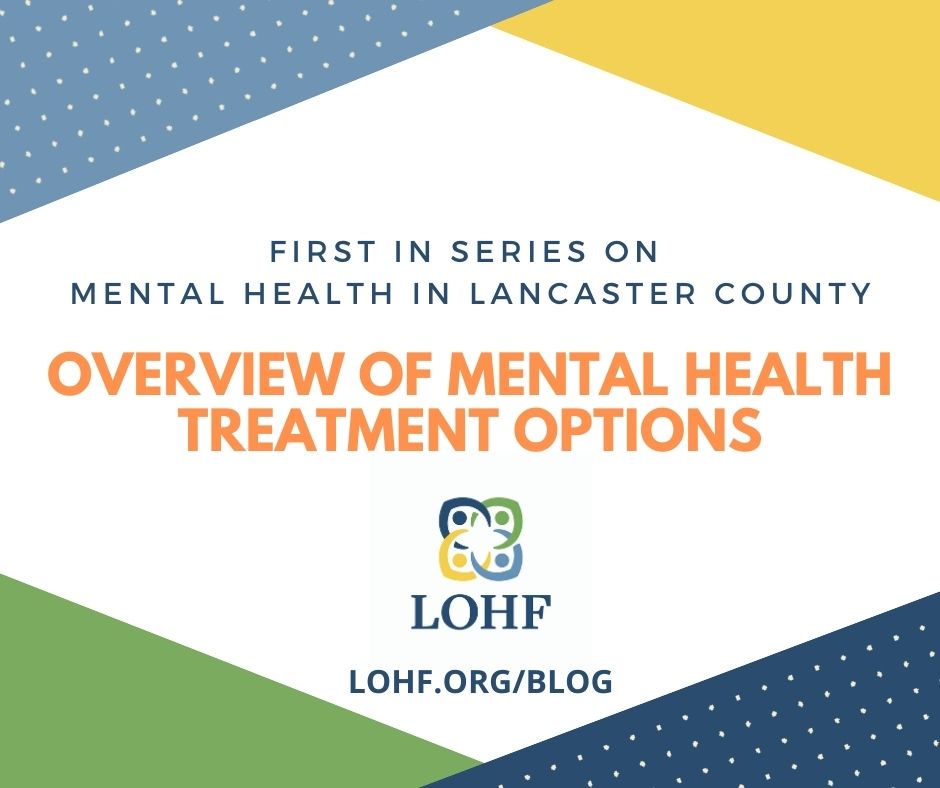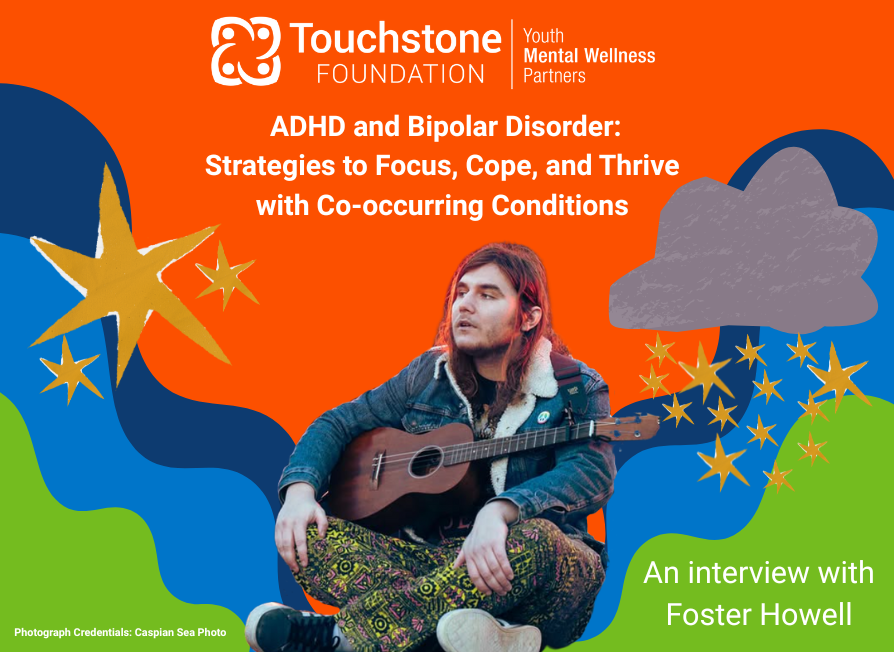
By Adam Biukians, MD
Adam Biuckians is Medical Director and Child and Adolescent Psychiatrist at Community Services Group and Board Chair of LOHF.
This post is first in a series on mental healthcare services in Lancaster County, Pa.
Treatment and care for mental health-related issues occurs in a variety of settings. The specific setting, and level or type of care, depends on a few factors: the nature and severity of the person’s mental condition, their physical health, and the type of treatment that is needed. The primary treatment settings for receiving mental health care or services are hospital inpatient, residential, partial hospitalization, intensive outpatient care, and outpatient. Mental healthcare services are also increasingly being provided by telephone and videoconferencing (such as Facetime, Zoom, Google Meet, Skype, etc.)
Hospital Inpatient Care
Hospital inpatient settings involve an overnight or longer stay in a psychiatric hospital or psychiatric unit of a general hospital. Inpatient hospitals provide treatment to more severely ill mental health patients, typically for several days to several weeks. A person admitted to an inpatient setting might need help around the clock for their safety and security until their symptoms improve.
General medical and surgical hospitals may have a psychiatric inpatient unit and/or a substance abuse unit, although these are becoming less common. Stand-alone psychiatric hospitals treat mental illnesses exclusively, although physicians are available to address other medical conditions.
A psychiatric hospital might have specialty units to treat eating disorders, geriatric patients, child and adolescent patients, substance use disorders, and trauma-specific disorders. Locally, such hospitals include Lancaster Behavioral Health Hospital, Wellspan Philhaven (Mt. Gretna), and the Pennsylvania Psychiatric Institute (Harrisburg).
Residential Care
A person who is not improving or continues to exhibit symptoms that may put their safety and security at risk may require long-term care. They would typically be transferred to another facility or setting within a psychiatric hospital that is designed to be more comfortable and less like a hospital ward.
These residential facilities are tailored to people with chronic psychiatric disorders such as schizophrenia or bipolar disorder, which impair their ability to function independently. Locally, such facilities include Wernersville State Hospital (Reading) and the Extended Acute Care Unit at Wellspan Philhaven (Mt. Gretna). For children and adolescents, the closest facilities include Kids Peace (near Philadelphia) and Hoffman Homes (near Gettysburg).
Partial Hospitalization Care
Partial hospitalization programs (PHPs), often called day programs, are outpatient programs that patients attend for six or more hours per day, every day or most days of the week. These programs, which are less intensive than inpatient hospitalization, may focus on psychiatric illnesses, substance use disorders, or both. They commonly offer group therapy, educational sessions, and individual counseling. A PHP may be part of a hospital’s services or a freestanding clinic.
Intensive Outpatient Care
Intensive outpatient programs (IOPs) are similar to PHPs, but are only attended for three to four hours, two or three days per week. They often operate in the evening to accommodate people who work during the day.
Another type of outpatient care available for children, adolescents, and families provides mental healthcare in home and community settings. This is more intensive than outpatient treatment in a provider’s office.
One example of this is Behavioral Health Rehabilitation Services (BHRS), which consists of some combination of a mobile therapist (MT), behavioral specialist consultant (BSC), and therapeutic support staff (TSS). A BSC helps develop a specific behavioral support plan for children with disruptive behaviors, and a TSS works directly with the child to implement the behavioral plan while modelling positive behavioral interventions for parents and other adults in the child’s life. An MT provides therapy services to the child and family in the home and community.
Another example of in-home care is called Family Based Services (FBS). This service consists of a team of two therapists that take a family systems approach to treatment. It is typically reserved for families where there is a high risk of out-of-home placement of a child due to severe mental or behavioral health concerns.
Outpatient Care
Outpatient mental health treatment includes office visits with no overnight stay. Outpatient treatment providers may be independent clinics or part of a hospital system. There are also providers in solo or group private practice. In these settings, patients can receive many kinds of treatment services from various types of mental healthcare professionals. There are quite a few providers of outpatient treatment services in Lancaster. Depending on the organization or practice, individual therapy, group therapy, and psychiatric medication management services may be available.
Many providers also offer specialty therapy services for certain mental health issues, such as trauma-focused therapy or parent/child interaction therapy. Additionally, schools frequently partner with clinics to provide therapy services to children and adolescents in school.
One way to locate local outpatient care is to dial 211 or visit pa211east.org/lancaster/. Your family primary care provider may also be able to refer you to outpatient care options.
Telehealth Care
The terms telepsychiatry, teletherapy, and telemental health services refer to psychiatric assessment and care or psychological support and services, provided remotely by telephone or the Internet using email, online chat, or videoconferencing.
Historically, these services improve access to care for individuals with mental health issues living in remote locations, underserved areas, or who are unable to leave home due to illness, emergencies or mobility limitations. Such services also allow clinicians to support their clients between visits.
During the COVID-19 pandemic, regulations regarding this type of service delivery were loosened to ensure that patients could continue to receive mental healthcare without having to physically visit a provider’s office.




